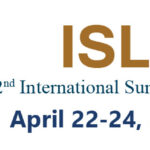
Amazingly, the human heart will start beating about four weeks after conception and will beat about 3.5 billion times in a lifetime or about 100,000 times a day.
It is a perfect pump with four chambers that allows nutrients, oxygen, hormones and any other substance required for life, to be transported through the circulatory system to any portion of our body.
 So it is no wonder then that in order to keep a healthy lifestyle, the heart is at the “core” of the matter.
So it is no wonder then that in order to keep a healthy lifestyle, the heart is at the “core” of the matter.
“The heart has its own circulatory system, the coronary arteries, frequently affected with plaque buildup that can ‘clog’ them,” Dr. Jara continues. This buildup is related to poor lifestyle habits and associated diseases such as obesity, hypertension, diabetes mel- litus, tobacco abuse, high cholesterol and even just advanced age.
Every year about 715,000 Americans have a heart attack. Of these, 525,000 are a first heart attack and 190,000 happen to people who have already had a heart attack.
“The term ‘heart attack’ refers to permanent damage to the heart caused by the lack of oxygen supply, most of the time secondary to atherosclerotic disease, the medical term for plaque buildup inside the coronary arteries,” Dr. Jara explained. “When the coronary artery is blocked completely by plaque and clot, a STEMI type of heart attack is very likely (the name STEMI refers to a specific change in the electrocardiogram).”
A STEMI type of heart attack is very dangerous, because irreversible damage to the heart will occur in a matter of a few hours, as well as significant risk of death. This permanent damage may cause long-lasting effects in the person’s life with persistent fatigue, shortness of breath, and inability to carry on daily activi- ties. There is also a risk of dying during a heart attack.
“Anything we do to our bodies will eventually affect the heart, including our state of mind and general well-being.”
What are the symptoms of a heart attack?
A heart attack will usually manifest with angina, the medical term for “heart ache,” typically described as a pressure-like discomfort in the center of the chest, triggered by emotional or physical stress, radiated to the left arm.
Both men and women can have the same symptoms; however, women may have more atypical presentations, such as pain localized in both arms, neck, upper back or jaw; and sometimes more prominent shortness of breath than pain.
All four Health First hospitals (including Cape Canaveral Hospital, Holmes Regional Medical Center, Palm Bay Hospital and Viera Hospital) have an advanced STEMI treatment system. STEMI is the type of heart attack where treatment must be provided swiftly, and requires the availability of a cardiovascular center with a cath lab where the patient with the “blocked” coronary artery can be treated by a team, led by an interventional cardiologist, a specialized physician trained in performing this procedure and treating patients with heart disease.
Visit Health-First.org/Heart or call (321) 434-3420
For more information on heart health:
- ♥ Consult your primary care physician and cardiologist
- ♥ AHA (American Heart Association)
- ♥ ACC (American College of Cardiology)
- ♥ SCAI (Society for Cardiovascular Angiography and Interventions) cardiosmart.org and scai.org/SecondsCount











